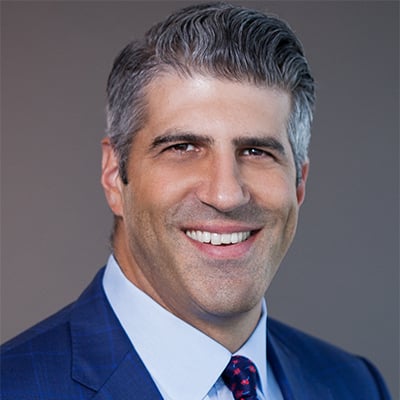U.S. Economic Sanctions: Across Last Year
'It is no exaggeration that 2019 was one of the most turbulent, interesting, and unexpected years that we have ever seen from a sanctions perspective': Mike Casey, Zach Brez and Kim Nemirow of Kirkland & Ellis trace 12 months of twists and turns.
In 2019, the United States unveiled a host of new sanctions measures targeting the Government of Venezuela, Iran, and a wide variety of other actors throughout the world. The Office of Foreign Assets Control (OFAC) also published much anticipated compliance guidance, as well as advisories on other sanctions-related topics. The last year was significant from a sanctions enforcement perspective as well. OFAC resolved 26 separate matters and imposed nearly $1.3 billion in penalties, illustrating OFAC’s aggressive approach to sanctions violators.
Policy Developments
Expanded Sanctions Directed at the Government of Venezuela
Since 2017, OFAC has steadily increased sanctions on the Government of Venezuela. In January 2019, OFAC designated Petróleos de Venezuela, S.A. (PdVSA), which was significant because PdVSA is a major player in the global oil and gas sector and the Government of Venezuela relies on PdVSA for much of its revenue. In August 2017, OFAC applied blocking sanctions to the Government of Venezuela writ large.
OFAC has issued various general licenses that allow U.S. Persons to participate in limited transactions involving the Government of Venezuela and PdVSA. U.S. Persons may still permitted to transact with non-sanctioned Venezuelan citizens and entities operating in the private sector as well. Nevertheless, given the Government of Venezuela’s deep involvement in the national economy, doing business in Venezuela is challenging for most U.S. companies. Non-U.S. citizens and companies also face risks transacting in Venezuela because OFAC is authorized to sanction foreign parties that engage in certain transactions with the Government of Venezuela and PdVSA.
Limited Changes to the Iranian Sanctions
In 2018, the United States’ withdrawal from the Joint Comprehensive Plan of Action and subsequent re-imposition of secondary sanctions materially changed the scope and nature of the Iranian sanctions. By contrast, the Iranian sanctions landscape did not change as drastically last year.
In 2019, OFAC designated a number of significant offices, individuals, and entities linked to the Government of Iran, including the Central Bank of Iran, the Supreme Leader of Iran and his office, other high ranking Iranian government officials, and the Persian Gulf Petrochemical Industries Company. OFAC added certain foreign persons to the SDN List for facilitating illicit trade with the Government of Iran and other Iranian persons and organizations targeted by sanctions.
The U.S. government expanded and tightened its secondary sanctions programs. In May 2019, President Trump issued executive orders that authorize OFAC to sanction foreign persons that engage in certain types of transactions involving Iran’s iron, steel, aluminium, and copper sectors. At the start of 2020, President Trump issued another executive order granting OFAC the power to sanction foreign persons who participate in proscribed transactions involving Iran’s construction, mining, manufacturing, or textiles sectors. The Trump administration also terminated sanctions waivers that allowed a limited number of countries to import Iranian oil without risking secondary sanctions. However, the Trump Administration has not yet aggressively utilized secondary sanctions to penalize foreign companies for transacting with Iran.
New Claims Under Title III of the Helms-Burton Act
The Trump administration has taken the unprecedented step of not waiving Title III of the Helms-Burton Act. Enacted in 1996, the Helms-Burton Act contains a section (i.e., Title III) that permits U.S. nationals to bring civil claims against--and potentially recover damages from-- persons who have knowingly or intentionally “traffic” in “property” confiscated by the Government of Cuba after January 1, 1959 within the previous two years. “Traffic” is defined broadly to include purchasing, selling, transferring, using, benefiting from, and profiting from confiscated property.
Following the passage of the Helms-Burton Act, American presidents suspended Title III from 1996 through 2019. As a result, U.S. nationals were unable to bring claims under this part of the Helms-Burton Act. In early 2019, President Trump allowed the suspension of Title III to lapse. This meant that starting on May 2, 2019, U.S. nationals could bring claims pursuant to Title III. To date, plaintiffs have filed a limited number of such claims in federal district court. President Trump’s decision not to suspend Title III could have consequences outside of the United States. EU operators that are defendants in Title III actions may attempt to rely on the EU Blocking Statute to stymie such litigation.
OFAC Compliance Guidance
In May 2019, OFAC published widely anticipated guidance regarding sanctions compliance. A Framework for OFAC Compliance Commitments sets forth a road map for companies to follow when designing and implementing sanctions compliance programs. The guidance details the components that comprise an effective sanctions compliance program, including management commitment, risk assessments, effective internal controls, testing and auditing, and employee training. The framework also highlights a number of compliance gaps that resulted in companies violating sanctions in recent years.
Rapid Changes to Sanctions
Last year highlighted OFAC’s willingness to impose and lift sanctions, sometimes in rapid succession. In January 2019, OFAC de-listed three Russian entities (i.e., EN+, Rusal, and ESE) after each entity restructured to limit Oleg Deripaska’s ownership and control. In October 2019, OFAC sanctioned Turkey’s Ministry of National Defence and Ministry of Energy and Natural Resolutions and simultaneously designated three Turkish government officials. Nine days later OFAC changed course and lifted these sanctions.
Throughout the year, OFAC has delisted numerous persons who had been designated pursuant to several different sanctions programs. In these scenarios, the targeted persons successfully petitioned OFAC to lift the sanctions. These actions demonstrate that OFAC sanctions are not necessarily permanent and that parties that alter their conduct can obtain sanctions relief.
Rise in Congressional Sanctions
In recent years, Congress has become increasingly active in the sanctions space. In 2017, President Trump signed into law CAATSA, which was bipartisan-supported legislation that required imposition of new sanctions related to Russia, Iran, and North Korea. At the end of 2019, Congress included various sanctions-related provisions in the NDAA legislation that requires the President to impose mandatory secondary sanctions on foreign persons that engage in specified activities involving North Korea, Syria, and Illicit Opioid Manufacturers, and NordStream 2. Various legislation is also pending in Congress direct at Russia, including the so-called Sanctions Bill from Hell.
Enforcement Trends
OFAC Active in Pursuing Sanctions Violators
OFAC’s enforcement division had a busy year. OFAC announced the resolution of 26 cases and imposed over $1.2 billion in fines and penalties. The enforcement actions were diverse in that they involved big-dollar enforcement actions against foreign financial institutions, a series of settlements with U.S.-based non-financial institutions, and a U.S. headquartered private equity sponsor. OFAC even resolved a case with an individual, which was notable because an individual had not entered into a settlement agreement with OFAC since 2014.
U.S. Persons Held Liable for Foreign Affiliates’ Conduct
Several cases involved U.S. companies agreeing to resolve potential liability stemming from their foreign subsidiaries’ dealings with Iran (e.g., Kollmorgen Corporation, Stanley Black & Decker, Inc., and PACCAR Inc.). As foreign entities owned or controlled by U.S. Persons, the foreign subsidiaries were obligated to comply with the Iranian Transactions and Sanctions Regulations (ITSR). By transacting with Iran, both the foreign entities and their U.S. person owners faced liability under the ITSR.
OFAC Focused on Pre-Acquisition Diligence and Post-Closing Compliance Measures
A number of enforcement actions contained relatively similar fact patterns. In these cases, a U.S. company or private equity sponsor purchased a foreign entity that conducted business with Cuba or Iran. The U.S. purchaser identified the target’s dealings with sanctioned countries during pre-acquisition due diligence and then took remedial measures designed to stop the foreign entity from continuing such business after completion. Despite these efforts, the foreign entity continued to transact with sanctioned countries in contravention of the Cuban or Iranian sanctions. OFAC brought claims against the foreign entities (e.g., AppliChem GmbH, Jiangsu Guoqiang Tools Co., Ltd., ) and/or the U.S.-based purchaser (e.g., Kollmorgen Corporation, Stanley Black & Decker, Inc., Expedia Group, Inc. ) for post-closing conduct. These cases highlight the importance to U.S. buyers of carrying out robust pre-acquisition diligence and ensuring that foreign entities have implemented adequate sanctions compliance programs after closing.
Increased Scrutiny of Individuals
In recent years, OFAC has not focused its enforcement efforts on bringing cases against individuals. This trend may be changing. In June 2019, OFAC announced its first settlement with a natural person since 2014. In this case, an unnamed individual entered into a resolved their potential liability under the Cuban sanctions for participating in unauthorized travel-related transactions to and within Cuba.
OFAC named Evren Kayakiran a foreign sanctions evader concurrent with its announcement of the Kollmorgen settlement. Kayakiran, the manager of Kollmorgen’s foreign subsidiary, was deemed to be primarily responsible for the foreign subsidiary transacting with Iran in violation of U.S. sanctions. It seems likely that OFAC elected to impose sanctions on Kayakiran--as opposed to bringing an enforcement action against him in his individual capacity--because he was not subject to OFAC’s jurisdiction. These actions, as well as recently published agency guidance, suggest that OFAC is increasingly focused on bringing cases against--or otherwise punishing--individuals who breach the U.S. sanctions regulations or assist others in committing sanctions violations.
OFAC Successfully Challenged in Court
Historically, most parties subject to OFAC enforcement actions have agreed to enter into enter into settlements to resolve their potential liability. The time, cost, and relatively unfavourable standard of judicial review have dissuaded parties from challenging OFAC’s theories of jurisdiction or liability in court. However, this trend may change following ExxonMobil’s recent victory.
In July 2017, OFAC issued a penalty notice that asserted ExxonMobil had violated the Ukrainian Sanctions Regulation by finalizing eight legal documents with Rosneft that Igor Sechin signed on behalf of Rosneft. Sechin served as Rosneft’s CEO and OFAC designated him shortly before he executed the document. OFAC asserted that ExxonMobil committed egregious violations of the sanctions, and imposed the statutory maximum civil penalty of $2 million on the company.
ExxonMobil challenged OFAC’s penalty in federal court, asserting that OFAC’s interpretation of the relevant sanctions regulations was arbitrary and capricious and that OFAC’s penalty violated it Fifth Amendment due process rights. The federal district judge ruled in ExxonMobil’s favour and vacated the penalty, concluding that OFAC failed to provide fair notice of its preferred interpretation of the Ukrainian Sanctions Regulations.
ExxonMobil’s victory may embolden other parties to challenge OFAC’s interpretation of the sanctions regulation or otherwise dispute their potential liability through judicial avenues. Court challenges will be more likely if OFAC continues to take expansive positions with respect to jurisdiction and adopt aggressive liability theories in enforcement actions.
Last year was eventful with respect to sanctions policy and enforcement. The Trump administration’s reliance on economic sanctions as a foreign policy tool and OFAC’s continued emphasis on pursuing sanctions violators suggests that 2020 will be just as active.


